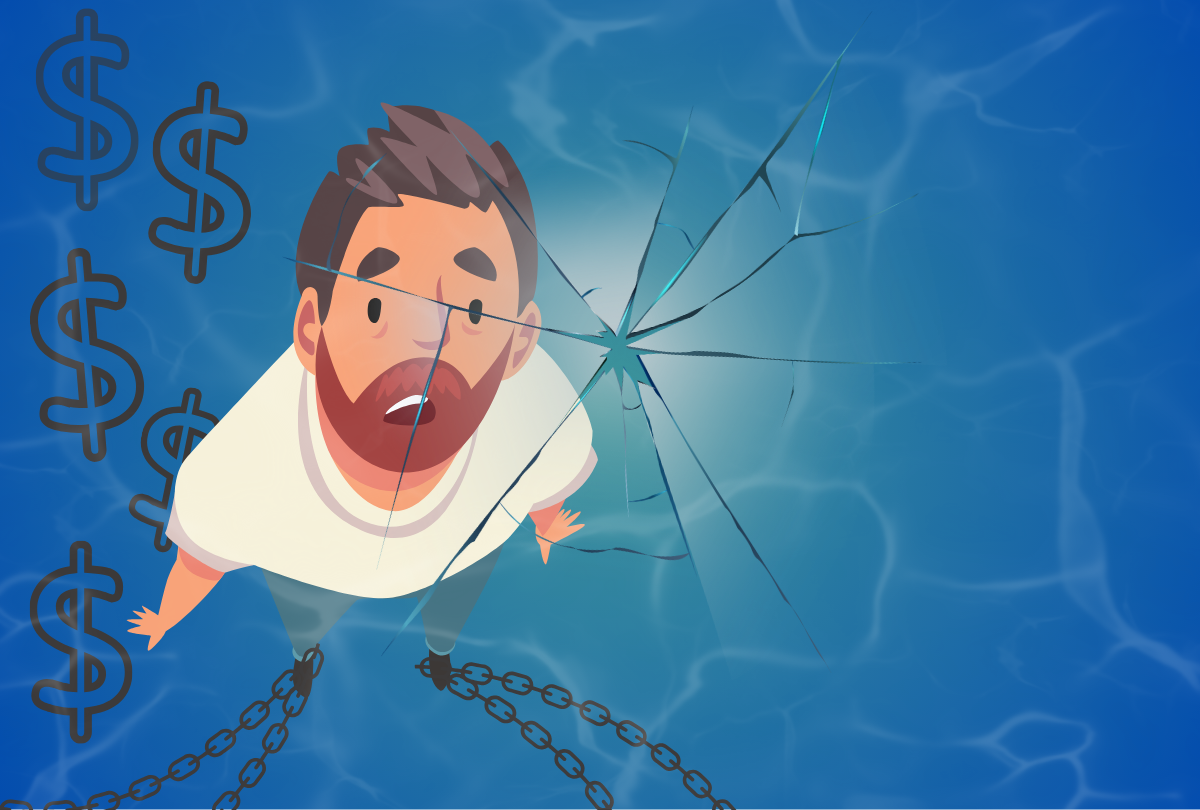A study conducted by Brookings, a nonprofit research organization based in Washington, D.C., discovered that between 33% and 43% of U.S. families do not have sufficient resources to afford living essentials. The percentage of poverty-stricken families frequently fluctuates, but as of the last several years, the numbers have consistently begun to climb.
Identifying a root cause for poverty itself would be impossible, for there are dozens of factors that contribute to the state of someone’s finances; however, there is a systematic process that makes poor individuals stay poor. Most American banks adopt various fees that could force someone in a financial deadlock, such as overdraft, dishonored check and non-sufficient funds (NSF) penalties.
These three fees are the largest debit-related contributors to financial distress, and they all follow a similar guideline. If there is not enough money in an account, then there will be a higher charge as a consequence. For instance, overdraft fees are set in place to help maintain a minimum balance in an account, if one is required. If the amount of money in the account dips under the minimum required balance, then the bank would charge the account holder a fee. The fee can vary depending on account provider, but the national average is approximately $35 per transaction, according to the Federal Deposit Insurance Corporation.
Dishonored check and NSF penalties both can apply when an individual attempts to make a payment with an account lacking the funds to cover the purchase. The primary difference between the two is the intention of the account holder.
If an account holder is a customer using a check to pay for a product, then they could be charged with a dishonored check fee. The Internal Revenue Service (IRS) decides the fee based on the payment amount, which is on a greater than or less than $1,250 scale. In a case where the payment is less than this amount, then the account holder will only be charged $25. If it is more, then they are charged a penalty of two percent of the initial payment.
On the other hand, NSF penalties occur when a pre-authorized payment is withdrawn from an account, or a bank blocks a processed check due to an insufficient balance. Unlike dishonored checks, banks charge an individual a set amount no matter the amount the account holder is trying to pay. For example, the fee would stay the same if a person is declined a $10 purchase or a $1,000 purchase.
Banking fees alone trap individuals into financial loopholes. However, they are not the lone contributor to the systematic process that keeps these individuals in the loop. According to the Federal Reserve Bank of Atlanta, 82% of American adults have credit cards. When an individual starts a credit agreement, then they have a credit score tied to their name.
Credit scores are, essentially, an easy-to-read number indicator of the state of an individual’s credit report. It tracks the likelihood of a person to maintain their credit card payments with a ranking. The scale ranges from 300 to 850, with the highest score being the most preferred.



